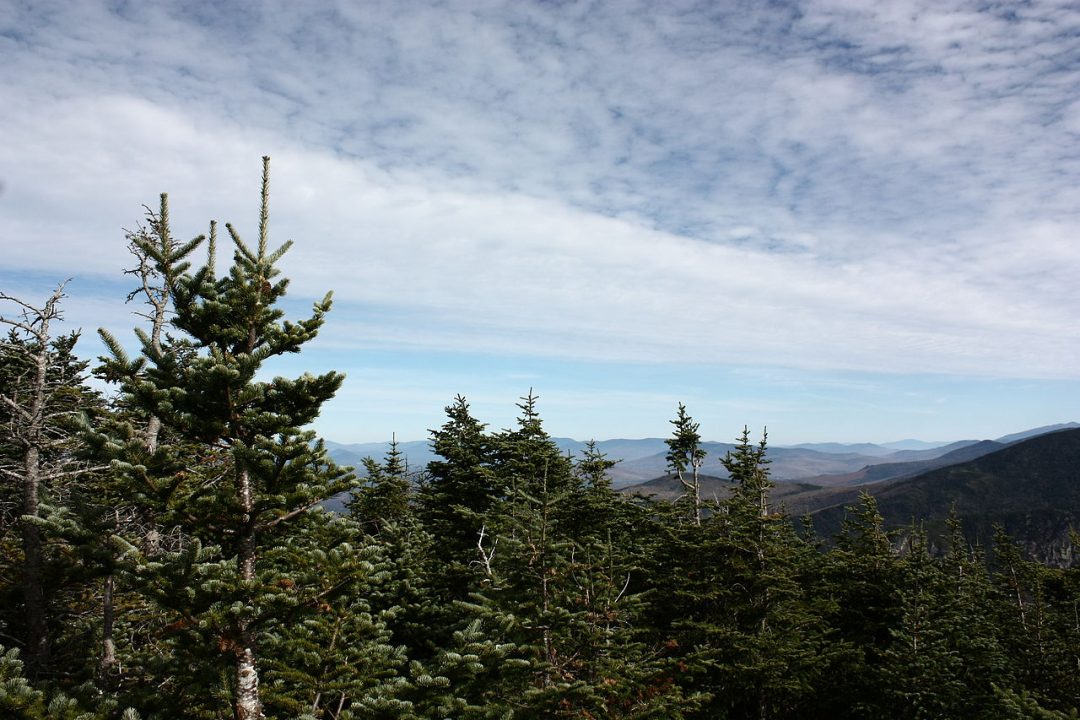Spruces on Cannon Mountain. Photo by Marcus Quigmire/Wikimedia commons

I started walking in the woods as a way to write more honestly about 15 years ago, after my father died. I already knew at that point that getting onto a forest path, alone, helped me sort out what I think. But I was still in the mode then of putting off the time in my life when I would act on thoughts.
The day my father died, he told me about a conversation he’d had with someone at work who’d asked him—because Dad was always telling stories—if he had ever done much writing. “No, but my daughter is trying to,” he said he told her. I smiled. I was working full-time as a newspaper reporter, buried in deadlines and surrounded by husband and children. I was waiting for the rest of my life—for the calling I felt to write something other than newspaper articles—to happen to me. My father held up a Newsweek magazine cover about people who were fried by work. He raised his eyebrows.
That night, my father died, and in the days after, I felt this tremendous push: start writing stories. I knew I was a writer, but I was not writing from my own ideas then. I started by picking up a book by Julia Cameron, The Artist’s Way. Cameron tells us to write three pages in a notebook every day, no matter how difficult. Cameron’s methods don’t all speak to me, but this one cemented the habit of regular writing, and I have been working on spiral bound notebooks ever since.
Some years before all this, I had met myself in the mountains. My husband and I and two friends quit our jobs and sublet our apartments to hike from Georgia to Maine for four and a half months. I was 28. This was the first time I had ever broken out from society’s expectations, and, tame as it was, it liberated me to behomeless for that period.
I needed to do that then, and I still need to walk every day now, because I am one of those people who try a little too hard to please the world. I smile at people who are rude. I blush at pushy clerks. Walking alone takes me to who I really am and makes it possible to write originally. If the prose isn’t supposed to smile, it doesn’t. But I have to trudge through the woods first.
I have found that even in the press of earning a living, I can steal an hour out of the beginning of the day. After the first half-hour walking on a leafy path, the demands of the world I take too seriously begin to fade. Then the person I can’t normally hear visits me and tells me what to write. I can’t do this as well if I haven’t been in motion.
